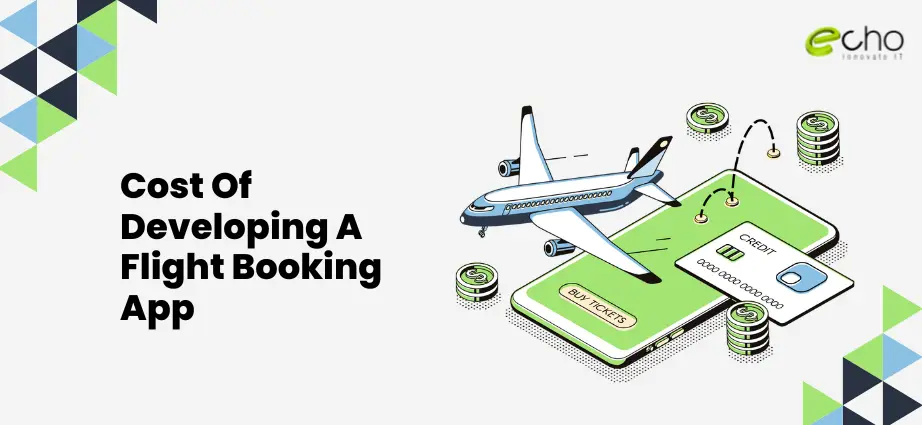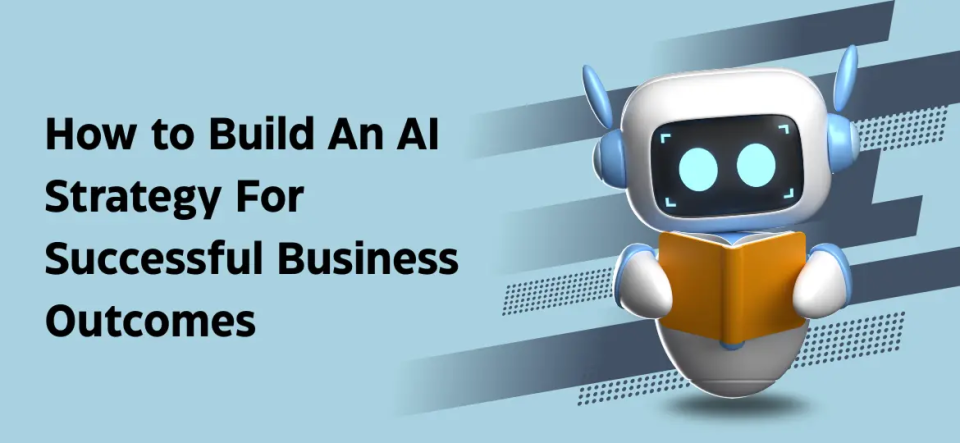Planning to develop a Flight Booking App but unaware what would be the exact cost?
You are at the right place…
In today’s article, we’ll focus on flight booking app development cost, some factors that can affect the average costs amidst the developmental process, and knowing some of the business models available for flight booking apps. At last, we’ll also learn some smart ways through which you can earn money through flight booking apps! But before that, let’s briefly understand flight booking apps.
What Is A Flight Booking App?
A flight booking app helps you to purchase a flight ticket and reserve a seat for a particular flight. In such apps, users can check flight prices, book flights by selecting their preferred dates, and pay online with convenience. In today’s fast-paced world, buying flights has become an important component of travel planning, as well as a great luxury. The days of physically visiting a travel agent or airline counter to book a ticket are long gone.
Thanks to technological advancements, we now have the greatest travel booking app, which has made the process more convenient and efficient. These traveler-favorite flight apps have altered how we book flights and are quite popular. These best flight applications not only provide convenience but also save your time and effort by ensuring a smooth booking process.
Thus Flight Booking App Development is the process of creating a mobile app that allows you to discover, book, and manage flights using your smartphone. You can also use other travel services like vehicle rentals, hotel reservations, and airport transfers. It’s a convenient method to arrange your trip while saving time and money. Wondering whether you should invest in such apps or not?
Continue reading…
Why Should You Invest In Flight Booking App Development
Let’s Find What The Market Has To Say…
- By 2026, flight booking revenue is expected to expand at a 26.67% annual pace, with a market volume of $0.72 trillion.
- Almost 90% of corporate travelers use smartphones with 50% of travelers managing their trips through booking apps. With this mobile travel apps are gaining rapid market shares with users easily tracking their booking status at ease. Thus flight booking apps are expected to increase the growth of the travel market in the future.
- According to Grand View Research, the global online travel booking service market was valued at USD 519.1 billion in 2021 and is predicted to increase at a compound annual growth rate (CAGR) of 9.0% between 2022 and 2030.
- With this, the U.S. travel booking market will benefit with other regions like Canada, Germany, the U.K., and France, consecutively.
With this, you must invest in Flight Booking App Development, a thriving sector that provides convenience and efficiency to travelers. A travel booking software allows users to quickly book flights, hotels, and other travel-related services. They can also compare prices, read reviews, and get unique discounts. According to current figures, the online travel booking sector is poised to expand rapidly in the future years.
Cost Of Developing A Flight Booking App
Flight booking app development costs may vary in terms of various factors, although you can expect the estimated cost between $35,000 to $200,000. Now talking about some of the factors that may influence your overall cost, they are the complexity of your flight booking software, hourly rates and location of the developer, and the number of months it will take to get your application developed. Let’s cut down the cost to make your app development journey simple and convenient.
Analyzing The Cost Of Flight Booking App Development
| Level of Complexity | Estimated Cost | Time Structure |
|---|---|---|
| Basic | $35,000 to $55,000 | 2-6 Months |
| Moderate | $55,000 to $95,000 | 6-8 Months |
| Advanced | $100,000 to $200,000 | 9+ Months |
As you can see, the above table shows the estimated flight booking app development cost varying from basic to advanced in the context of time and features you might integrate. Since every company has unique requirements and the development process differs between agencies, let us discuss some of the common factors that may affect the cost of developing a flight booking app.
Also Read:
Factors Influencing The Cost Of Flight Booking App Development
UI/UX Design
Prototyping, wireframing, and developing UI components can all help you design a visually beautiful and user-friendly interface. Thus, expenses will be determined by the design’s complexity as well as the number of screens and interactions required.
Team Of Developers
- You will require a Project Manager to oversee the development process and coordinate team members.
- UI/UX Designers for building a responsive and visually appealing user interface.
- Front-end developers who will be responsible for designing the app’s user interface.
- Back-end Developers create server-side components and integrate APIs for bookings, flight info, and payments.
To test the app’s usability, functionality, and performance, you will also require QA Engineers.
Features and Functionality
Basic functionality like search, booking, and payment are essential. However, to stand out, you may need to include additional features like price comparison, real-time notifications, loyalty programs, and interaction with other businesses like hotels and auto rentals. It is vital to note that adding more features increases complexity and, as a result, raises expenses.
Team Size
When deciding on a team size for software development, it is critical to evaluate the cost-quality trade-off. The size of the team that builds a flight booking app has a major impact on the bespoke flight booking app development cost. Although the team size won’t be more than 15 members.
Platform
- Developing for Android, iOS, or both platforms will impact the final cost.
- Native app development for each platform is typically more expensive than cross-platform development frameworks such as Flutter and React Native.
Tech Stack
- Backend Frameworks: Node.js, Ruby on Rails
- Frontend: React, Angular
- Database: My SQL, Mongo DB
- Cloud Service: AWS, Google Cloud
- Payment Gateways: Stripe, PayPal
- APIs & Integrations: Skyscanner, Expedia
- Push Notifications: Nexmo, Ubuntu
Location of the team
The location of the software development agency has a direct impact on the cost of creating a flight booking app. For example, the hourly rate of development in Asia is significantly lower than in the UAE, the United Kingdom, or the United States.
| Region | Hourly Rates (per region) |
|---|---|
| USA | $90-$100 |
| Australia | $70-$90 |
| Asia | $20-$40 |
| Western Europe | $80-$90 |
| Eastern Europe | $50-$60 |
| UAE | $60-$75 |
Maintenance and Updates
Regular maintenance, problem repairs, and post-support should also be taken into consideration. Maintenance costs vary depending on the quality of support required and the frequency with which updates are delivered.
Additional Costs
Additional costs may include Infrastructure expenses and hosting of server-side components. Costs can be related to getting required licenses or certificates.
Marketing and advertising expenses to increase app visibility are other add-ons.
Must-Have Features In Your Flight Booking App
User Panel
Login: To access the app’s functions, users must enter their appropriate credentials.
Flight Schedule: The flight feature gives flight information based on the location and time entered. You can obtain travel information for the specified date, including pricing and availability.
Flight Booking: This service allows customers to book flights at any time. You must make the booking process simple for your users, allowing them to buy their flights in seconds.
Booking Status: Here, users can check the status of their reservation. Users can see if their tickets are confirmed or canceled. If it is possible to cancel, a notification will appear.
Flight Status: This area will provide information on the status of your users’ flights. It provides cancellations, delays, arrivals, and departures information.
Check-ins: Users no longer need to rush to verify documents because everything is done digitally on the app, saving time and effort. It also helps with the avoidance of formalities. They can find all the check-in information here.
Ratings & Reviews: Users are increasingly interested in leaving reviews. They can share their thoughts and feelings about the ticketing services. It’s an excellent method to share your expertise with others.
Admin Panel
Multilingual Support: Your app should support many languages, allowing your users to easily connect and manage support and services.
Offer Management: This functionality allows the service provider to manage the unique offers that they show to their passengers on their airline bookings.
Chatbot: An interactive interface, such as a chatbot, integrated with flight booking software would help administrators resolve client difficulties simply by selecting comparable terms and passing on system-generated responses. Users can get assistance 24 hours a day, seven days a week through such services.
Information Management: This part will allow service providers to manage all essential information, such as flight data, client information, and so on.
Manage bookings: This option simply manages all of the booking data for passengers who wish to travel in a single day.
View Searches: This feature makes pricing and orders based on volume and search keywords easier to manage.
Customer Support: This functionality enables administrators to provide 24/7 help to users, which is critical for business.
Also Read:
Types of Business Models For Flight Booking App Development
There are several options available when it comes to business models for flight booking app development. Some of them are listed below
Commission-Based Model
In this approach, the app generates money by collecting a commission or transaction fee for each flight booked using the platform. The commission may be a percentage of the ticket price or a set sum per booking. The app serves as a liaison between the airline or travel agency and the customer, easing the booking process and collecting a commission on each successful transaction.
Subscription Model
In this model, the customer pays a minimum amount of monthly or yearly fee to gain access to premium services, exclusive offers, and discounts. This approach will help you gain regular profits and customer loyalty. As users will most likely renew their subscriptions repeatedly to use the services.
Advertising Model
With this strategy, the app earns money by presenting adverts for airlines, hotels, car rental providers, and other travel-related businesses. The app may provide targeted advertising alternatives based on the user’s preferences and travel history. Advertisers pay for ad placements, clicks, and impressions, which generates money for the app.
Merchant Model
In this arrangement, the app owner purchases seats in bulk from airlines at negotiated costs and resells them to clients. The profit is derived from the difference in wholesale and retail pricing. This approach needs a significant initial investment and is more risky, but it has the potential for bigger returns.
Hybrid Model
A hybrid model generates money from a variety of sources, including commissions, adverts, subscriptions, and affiliate relationships. This strategy provides for the diversification of revenue streams and may be adapted to the unique app’s offerings and market dynamics.
Also Read:
How Can You Make Money With Your Flight Booking App
As promised discuss this section, let’s talk about some of the monetization strategies you can try while running your flight booking app:
In-app purchases
Offer additional services or add-ons within the app for consumers to purchase.
This could include things like seat upgrades, travel insurance, lounge access, and other supplementary options. Provide users with ease and extra value, allowing them to choose to make these transactions to enhance their trip experience.
Data monetization
Analyze and exploit the app’s user data to provide important market insights and trends.
Aggregate and anonymize data to give market research reports analytics, and trends to airlines, travel agencies, and other travel-related enterprises. Ensure compliance with privacy regulations and acquire proper user consent for data use.
Partnerships and White Labeling
Provide your app’s technology and booking platform as a white-labeled solution to other organizations, such as travel agencies, tour operators, and airlines. Earn money by charging licensing fees or entering into revenue-sharing arrangements with partner firms that utilize your software under their brand name.
Also Read:
Conclusion
Wrapping up today’s blog on Flight booking app development cost, we hope you have understood the average cost and factors that may affect your overall cost in developing a flight booking app. The process of flight booking app development requires thoughtful preparation and execution. Thus it is a must to choose the right team of developers, the latest market trends and do a thorough analysis of successful flight booking apps being at the top of this business.
Develop An Outstanding Flight Booking App With Echoinnovate IT
As stated above, choosing the right development team is crucial for the success of your application. Develop an outstanding Flight Booking App with Echoinnovate IT, a reputed Mobile App Development Company based in the USA. Bring your ideas to us and we’ll help you make your App Development process smooth for a longer run.
Also Read:
FAQs- Flight Booking App Development Cost
What factors influence the development cost of a flight booking app?
Features, platform (iOS/Android), design complexity, third-party integrations, and developer rates are key factors.
Are there ongoing costs after the initial development?
Yes, maintenance, updates, server hosting, and any third-party API charges contribute to ongoing expenses.
How long does it take to develop a flight booking app?
Development time can vary from 3 to 12 months, depending on complexity and features.



